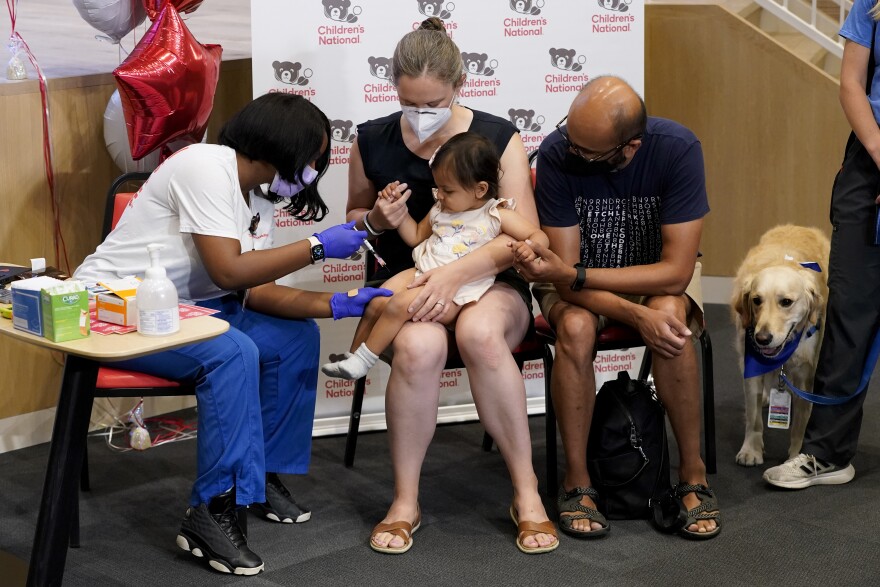COVID-19 vaccinations for kids under 5 have been slow-going at Los Barrios Unidos Community Clinic in Dallas. That’s concerning to Chief Medical Officer Sharon Davis. She said the organization had pre-ordered vaccines and staffers were ready to distribute them to families, but there hasn’t been as much demand as she’d hoped for.
“We are really disappointed ‘cause we have freezers full of vaccines,” Davis said. “We’re ready to go. We’re ready to start giving these out. So, that’s going to be the next big push.”
In Dallas County, 1.5% of eligible kids 6 months through 4 years old have received at least one dose of the COVID-19 vaccine, according to the Texas Department of State Health Services. Statewide, close to 4% of kids in this age group have been vaccinated.
Davis said the clinic has switched up its approach to offering vaccines: instead of touting appointments just for COVID shots, they’re offering COVID-19 vaccines for kids under five at the same time as back-to-school immunizations.
“We really want parents to start thinking that going forward, this is just a normal part of wellness,” she said. “The COVID vaccines are just like the other vaccines you’re giving your kids, and it’s just one of them to keep your child healthy.”
Chief of Infectious Diseases at Children’s Health in Dallas Jeffrey Kahn said the low vaccination rate is not just a Texas problem, but one that’s plaguing providers all over the country.
“There’s always a little bit of hesitancy, particularly with younger children, when a new vaccine comes out,” he said. “We know these vaccines are very safe and very effective. Yes, they’re relatively new vaccines, but we have now a mountain of information about these vaccines.”

Kahn said that while most kids have mild versions of the virus, not all do, and vaccination is the main way to reduce the severity and length of the virus.
“I’ve taken care of plenty of young children who have been hospitalized, some actually in the ICU, with pretty bad COVID,” he said. “This notion that it’s only people that are old, or only people who have underlying medical problems, that’s not true. This should be taken very seriously.”
New data reported by the Centers for Disease Control and Prevention (CDC) last week points to the impact long COVID is now having on kids. The study compared kids who previously had COVID-19 to kids who had not contracted the virus. It found kids who had COVID-19 were more likely to develop heart inflammation, renal failure, blood clots and diabetes as post-COVID symptoms.
Kahn and Davis both emphasized the importance of getting kids vaccinated as the school year starts. Hospitalizations and cases have both been increasing in Dallas County over the past few weeks, and Davis expects that to continue into the fall.
“New variants enter the population,” Kahn said. “The variants that are here start to change. We don’t know what the next weeks or months or year is going to be, so this is the time to protect your children.”
COVID-19 vaccinations for kids between six months and 17 years old are available at local pharmacies, public health clinics by appointment, and at health clinics and pediatric offices in the county.
Got a tip? Email Elena Rivera at erivera@kera.org. You can follow Elena on Twitter @elenaiswriting.
KERA News is made possible through the generosity of our members. If you find this reporting valuable, consider making a tax-deductible gift today. Thank you.







